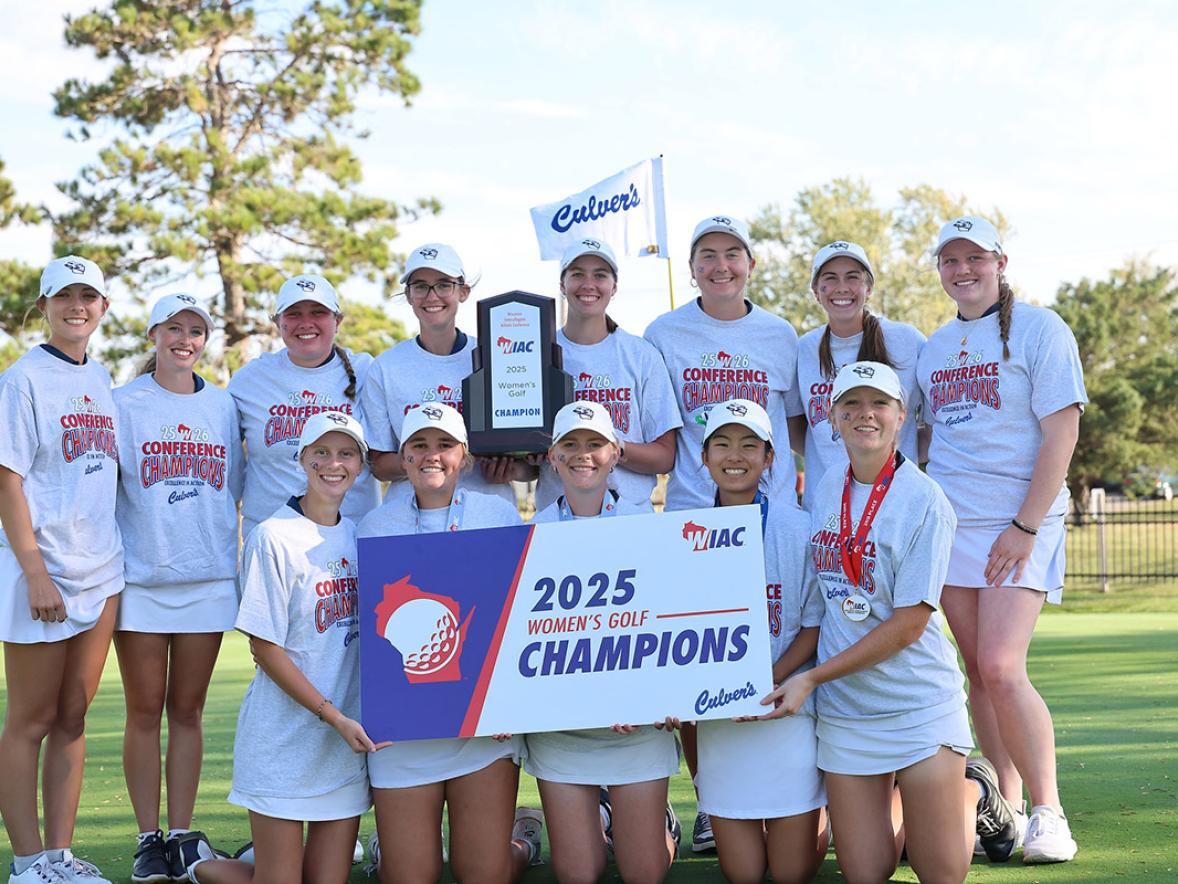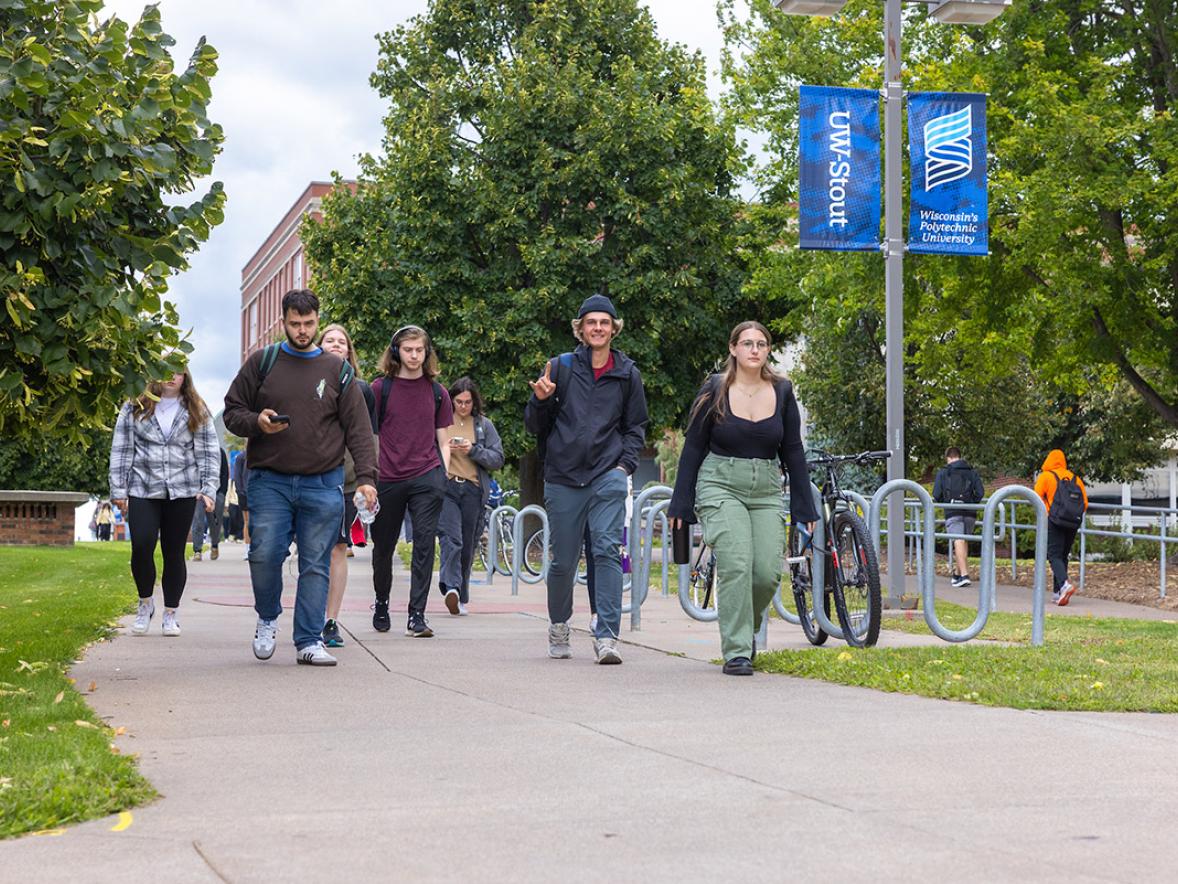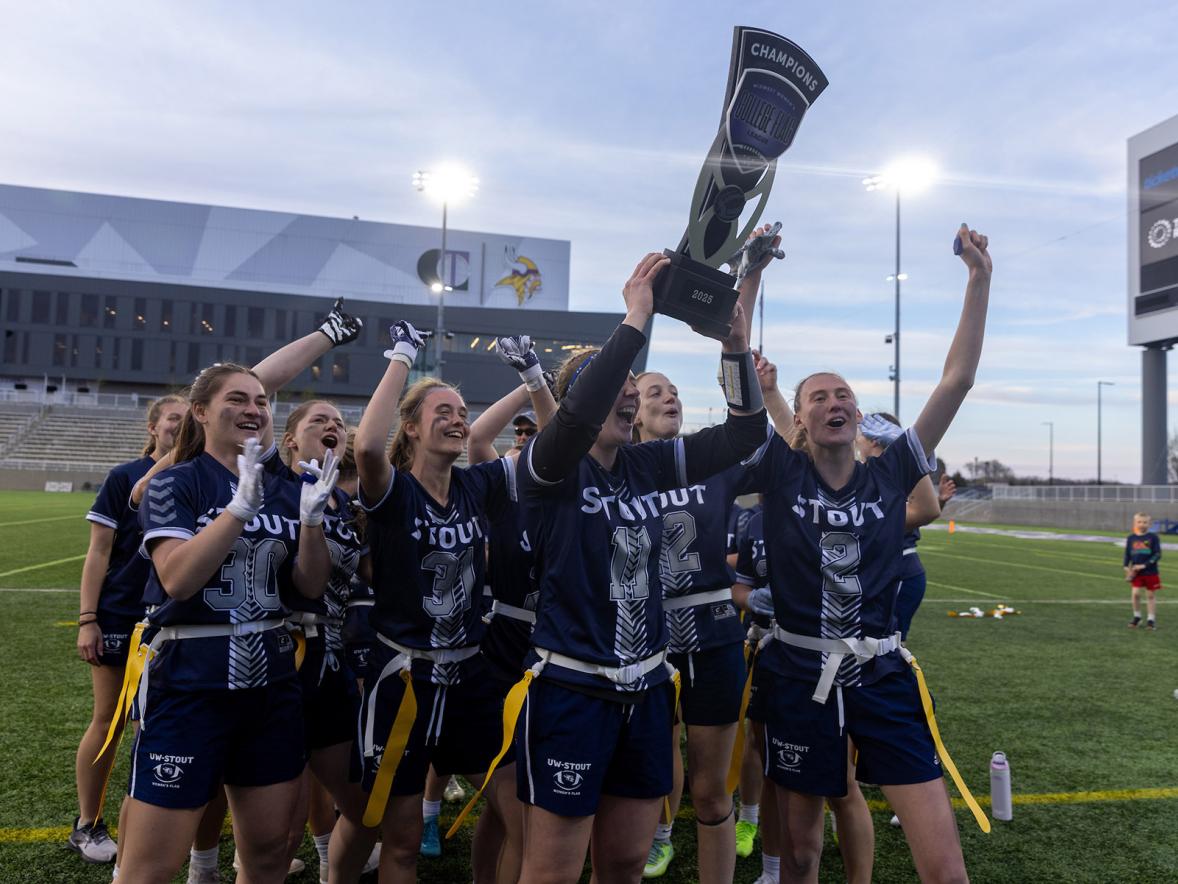Learning to grow and forage food leads to freedom, said Sean Sherman, author of “The Sioux Chef’s Indigenous Kitchen,” while speaking recently at University of Wisconsin-Stout.
“If you have control of your food, you are in control of your destiny,” Sherman said during the event entitled Decolonize Your Diet. “You don’t need lawns. Lawns are stupid. You could put food all over that landscape. That’s how to feed the world in the future. Plant knowledge is power.”
 Sherman, an Oglala Lakota who grew up on the Pine Ridge Reservation in South Dakota, opened the Sioux Chef catering and food education business in the Twin Cities, with a restaurant planned in 2019. The book, written with Beth Dooley, was published in 2017 by the University of Minnesota Press and recently was nominated for a prestigious James Beard Award in the American cookbook category.
Sherman, an Oglala Lakota who grew up on the Pine Ridge Reservation in South Dakota, opened the Sioux Chef catering and food education business in the Twin Cities, with a restaurant planned in 2019. The book, written with Beth Dooley, was published in 2017 by the University of Minnesota Press and recently was nominated for a prestigious James Beard Award in the American cookbook category.
Sherman spoke about the importance of revitalizing indigenous food systems, allowing indigenous people to reclaim their cultural heritage and share it. “Food is part of our cultural identity,” Sherman said. “It is part of who you are.”
After colonialism and Native Americans were forced onto reservations, their diets were made up of high glycemic government subsidy commodities.
“Seventy percent of our health care costs are directly related to our diet choices,” Sherman said. “We are using our own hands to destroy ourselves.”
Indigenous people took care of the plants and were careful to preserve them for food and medicine, Sherman said. Bringing back that knowledge and sharing it is one of Sherman’s goals.
During the event at Heritage Hall, Sherman cooked a wild rice pilaf that included wild mushrooms, roasted hazelnuts and dried cranberries. He poured corn stock into a fry pan and added the wild rice and mushrooms. The earthy smell of the mushrooms mixed with a smoky scent of the wild rice.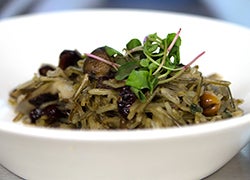
“A lot of recipes we’re doing are completely vegan,” Sherman said. “It ends up being wonderful plant-based food. It’s really super healthy.”
Those attending were able to sample the pilaf and cedar tea, from cedar branches harvested in the area. The tea is used to treat fevers, rheumatic complaints, chest colds and flu.
One of the hardest parts of bringing back indigenous foods was finding traditional seeds, said Sherman, who encouraged people to save seeds and share them whenever possible and give back to the Earth.
One of his favorite foods to cook is choke cherries. “I grew up with them. It’s a food memory for me.”
The event was sponsored by the Native American Student Organization, UW-Stout’s Slow Food chapter, Multicultural Student Services and the School of Hospitality Leadership.
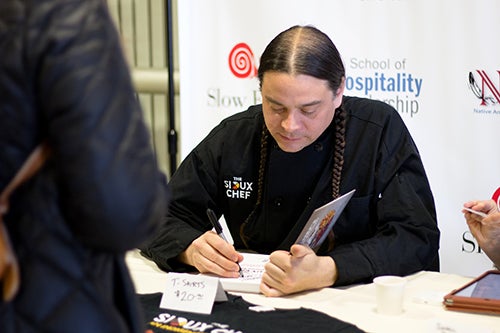 NASO aims to promote and instill awareness about Native American culture in the community and at UW-Stout. The organization promotes a welcoming and supportive atmosphere for Native American students. Slow Food advocates for good, clean and fair food by making quality food more accessible to all students.
NASO aims to promote and instill awareness about Native American culture in the community and at UW-Stout. The organization promotes a welcoming and supportive atmosphere for Native American students. Slow Food advocates for good, clean and fair food by making quality food more accessible to all students.
Matthew Giguere, UW-Stout instructor in the School of Hospitality, Leadership and Slow Food adviser, said sharing food is a way of creating community, learning food history and determining the future of the food system.
Kenny Waukau, 24, a junior majoring in dietetics from Mauston, said the wild rice pilaf was delicious. As a Native American from the Ho Chunk tribe, he was pleased to see his culture recognized and put in the forefront by Sherman.
“I think it provides an understanding for the younger generation and brings awareness about our culture and how we used to eat,” he said.
Ariana Waukau, 23, a first-year student from Wittenberg, said as a Native American from the Ho Chunk tribe she advocates sharing the culture to overcome stereotypes. Kenny and Ariana are married.
“I am excited to build awareness that we are still here,” she said. “Not a lot of people know a lot about Native American culture. I myself was surprised there is so much food out there to forage that we are not aware of.”
###
Photos
Sean Sherman co-authored the cookbook “The Sioux Chef’s Indigenous Kitchen. Photo contributed by Lauren Holzinger.
One of the recipes in the cookbook is wild rice pilaf. Photo contributed by Lauren Holzinger
Sean Sherman signs copies of the cookbook he co-authored. Photo contributed by Lauren Holzinger





